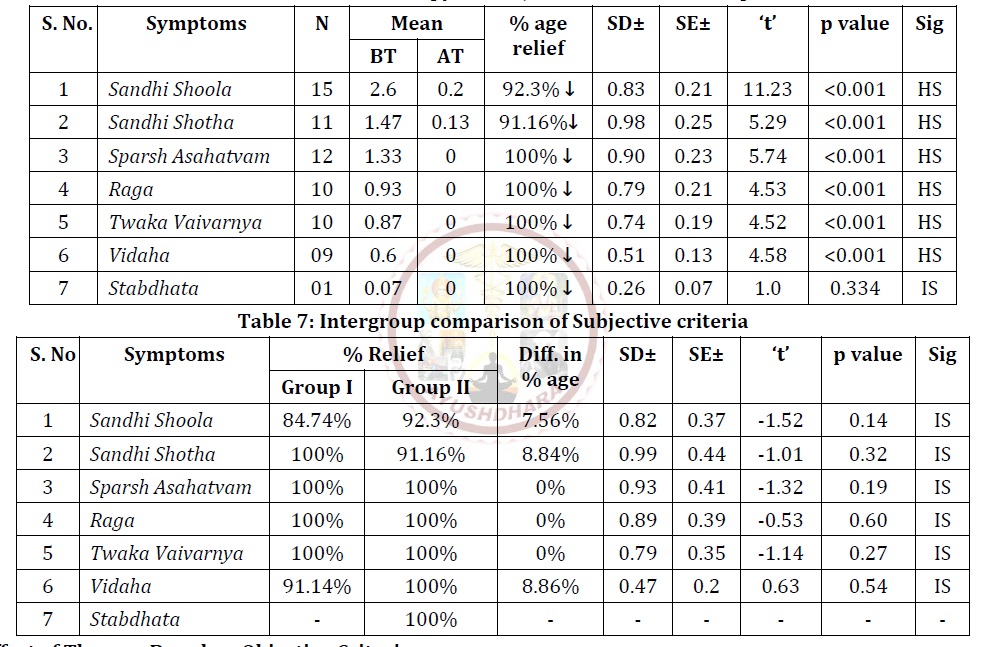A Clinical study to evaluate the effect of Amritadi Kwatha and Guda-Haritaki in the management of Vatarakta w.s.r. to Hyperuricemia.
DOI:
https://doi.org/10.47070/ayushdhara.v9iSuppl1.1020Abstract
The present is an era of rapid modernization. Due to sedentary lifestyle and faulty dietary habits, humans are becoming more vulnerable to several metabolic disorders. Vatarakta is one of them which is caused by association of vitiated Vata Dosha and morbid Rakta Dhatu. In modern science, it resembles the symptomatology of gout which is caused by hyperuricemia. The epidemiology of hyperuricaemia is different from that of gout. Only 10% of the patients with hyperuricaemia exhibit gout. It is more common in upper social class and affects men more than women. It is a potential signal for several comorbidities like diabetes mellitus, hypertension, coronary artery disease, obesity, renal diseases etc. The purpose of this study was to find out an effective and well accepted drug with minimal or no complications for this illness. 30 patients who were diagnosed with Vatarakta w.s.r. to Hyperuricemia were allocated randomly into two groups. The test drug i.e. Amritadi Kwatha 30 ml and Guda-Haritaki 10 g was given to 15 patients of Group I and the standard drug Febuxostat 40 mg was given to 15 patients of Group II for a duration of 6 weeks. Subjective parameters were assessed before and after the completion of trial. Data obtained during the trial was tabulated and statistically analysed.
Downloads

Downloads
Published
Issue
Section
License
Copyright (c) 2022 AYUSHDHARA

This work is licensed under a Creative Commons Attribution-NonCommercial-ShareAlike 4.0 International License.


